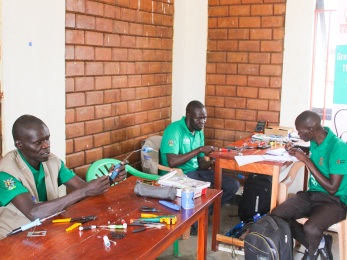How can small businesses cope in the face of multiple crises in Lebanon?

Mercy Corps’ latest research paper explores the ways small businesses have coped and adapted to the various crises in Lebanon over the last two years. Microenterprises are a critical engine for livelihoods across Lebanon and this study explores the range of impacts on microenterprises, examines different recovery trajectories, and tests hypotheses around the key determinants of firms’ resilience. Firms were purposely sampled based on their assessed performance during the crisis: thrivers, which maintained or increased their trade volume and revenue; divers that lost a substantial portion of trade, and survivors, firms which lost some revenue but continued to function approximately as before.
What drives firms’ performance?
- The crisis has affected the underlying dynamics of Lebanon’s market system, and while cooperation used to be a growth strategy, it no longer contributes to firms’ resilience. Peer networks, both formal Business Networking Organisations (BNOs) and informal collaborations among enterprises, are not helpful for firms’ adaptation. In some cases, they provide poor information on market shifts and strategies for businesses to manage them. The study also suggests that political patronage is no longer as beneficial to firms as many assumed was the case pre-crisis; all politically-connected firms in the study are divers.
- Businesses with diversified sources of funds are more resilient. Firms function better when the owners have multiple businesses, have other family members with their own revenue streams, or receive remittances. Businesses that have access to several credit lines also perform better, whereas being dependent on just one credit source is common for divers.
- Firms which practiced adaptation in more stable times honed their capacity for critical analysis and innovation, and are therefore adapting better in response to the crisis. Faced with COVID-19 lockdowns and customers with lower purchasing power, they have updated their products and service offerings and adopted new marketing strategies to maintain sales. In particular, firms that incorporate online sales and marketing strategies, and develop novel service offerings stand out from the local competition, are now more successful and resilient.
Further research is needed to understand how the continued shocks in Lebanon have disrupted firms, and to design specific SME support policies and programmes. However, even at the time of data collection there were clear signs that microenterprises had been damaged and lost supporting structures; this trend has only continued since. It is vital that the development community act to address this crisis.

